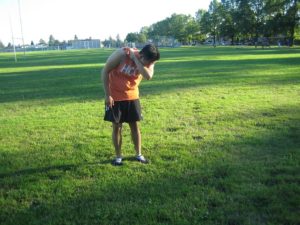Nose blisters in and around the nose can be quite painful and prone to infection. Once a child develops a blister, medical care is necessary to determine the root cause. Even though the blisters are generally brought about by mild infections, they do not necessarily indicate a serious underlying ailment. In case a child abruptly develops nose blisters, a doctor should be seen.
Infections and ailments
The nose blisters typically indicate an infection. A staph infection is usually caused by the staphylococcus aureus bacteria which is present in the skin and nose of the individual.
Chicken pox typically forms around the nose and arises as crusty, itchy blisters. Even hand, foot and mouth disease is a common ailment among children that spreads via contact with infected animals and persons. Children who have this ailment often experience mouth and nose blisters and fever.
What are the other causes?

Children with sinus infections might end up with nose blisters due to frequent rubbing of the nose. Even though the blisters subside once the sinus infection settles, they are at risk for infection.
Some of the blisters might be an allergic reaction triggered by direct exposure of the skin to allergens.
Home remedies for nose blisters
- Avoid squeezing or popping any nose blisters since this will only drive the infection deep into the skin and spread to other parts of the body.
- The child should be encouraged to avoid rubbing or picking on the blisters since this can further aggravate the skin particularly if they are brought about by irritation of the skin.
- Encourage the child to take in more fluids. Remember that dehydration can worsen the signs of staph infections, hand, foot and mouth disease as well as allergic reactions.
- The pain and itchiness can be relieved with the help of numbing gels and sprays that are available over-the-counter but consult a doctor first if in doubt.
Medical care
The doctor will figure out the cause of the nose blisters. If due to an infection, antibiotics are usually given.
The child should be given the instructed course of the drug even if the symptoms settle before finishing the course.
For blisters caused by hand, foot and mouth disease, the virus will subside on its own, but the child should avoid contact with other children.
